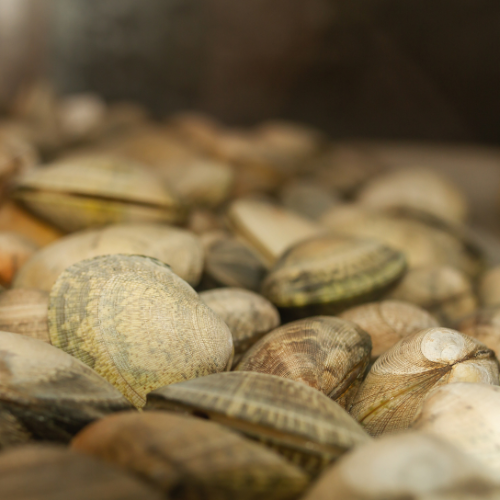Benchmark Genetics has expanded its genotyping portfolio with the launch of a high-density dual-species single nucleotide polymorphism (SNP) array for the Manila clam (Ruditapes philippinarum) and the grooved carpet shell (Ruditapes decussatus), two molluscan species central to European aquaculture and IGNITION’s research on breeding and resilience.
This innovative tool has been developed through close collaboration between Benchmark Genetics and EU-funded projects, IGNITION and ShellFishBoost, represented by the GEMMA (Genomics, Ecotoxicology, and Microbiology in Marine Animals) lab at the University of Padova, Italy. It is designed to support population genetics, parentage analysis, and genomic selection, a set of applications that are essential for understanding and improving traits such as disease resistance, climate tolerance, and overall performance in aquaculture environments.
This new genotyping tool will directly support IGNITION’s work in three key areas:
- Characterising genetic resources and supporting breeding improvements for species that form the backbone of molluscan aquaculture in Europe.
- Understanding how host genetics interact with environmental and microbial conditions to shape animal robustness in real production settings.
- Developing more resilient, sustainable aquaculture systems equipped to respond to environmental change and emerging challenges.
The SNP array brings high-throughput, cost-effective genotyping into reach for both researchers and industry. It provides a robust platform to evaluate and select for desirable traits, strengthening the link between innovation and practical aquaculture outcomes. This shared tool exemplifies the power of collaboration to accelerate impact across the aquaculture value chain.
By incorporating this technology into its research, IGNITION continues to push the frontiers of sustainable aquaculture—ensuring the sector is equipped for the future.
To know more about IGNITION’s research objectives and outputs visit our Resources page.

